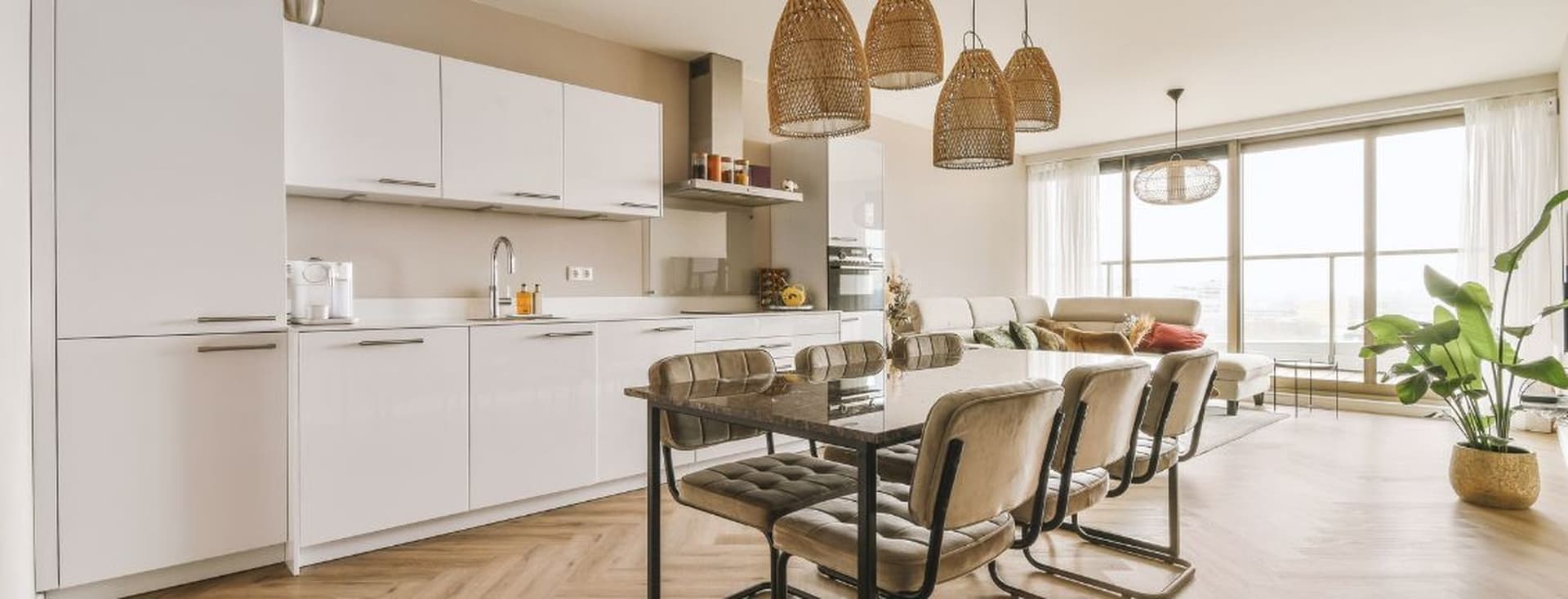
Rent successfully with Engel & Völkers
Discover our extensive network of amazing rental properties
Find out if you can rent an apartment in Dubai without being a resident. Learn about the legal requirements and explore your options.

Key Takeaways:
Renting an apartment in Dubai without residency is not permitted for long-term leases under UAE law
An Emirates ID is required to register your Ejari contract and activate utilities such as DEWA
Non-residents can stay in serviced apartments, hotel apartments, or short-term rentals without a visa
Subletting may be possible with landlord approval, but it offers limited protection compared to direct rental agreements
Dubai is renowned for its luxurious lifestyle, modern infrastructure, and global opportunities, attracting residents, investors, and visitors from around the world. As the city’s population is projected to rise from 4 million in late 2025 to 5.8 million by 2040, demand for quality housing continues to grow.
A common question for newcomers is: Can you rent an apartment in Dubai without residency? This guide explains everything non-residents need to know, from legal requirements and documentation to practical alternatives like short-term and serviced apartments.
In Dubai, renting an apartment on a long term basis (such as a one year contract) requires you to have a valid residency visa. This is because several processes, such as registering your tenancy contract (Ejari) and activating utilities like DEWA (Dubai Electricity and Water Authority), require you to have a valid Emirates ID, which is only issued to residents.
An Emirates ID is a required document for all UAE residents. It is used for a variety of essential services, including signing rental agreements, registering for utilities, and accessing government services.
Without an Emirates ID, you cannot complete the Ejari registration, which is crucial for legalizing your tenancy contract. Without an Ejari, both the rights of the tenant and landlord would be unprotected.
Without an Emirates ID, you face significant limitations when trying to rent an apartment in Dubai. You cannot legally register your tenancy contract, which means you cannot activate utilities or ensure legal protection under UAE tenancy laws. This makes renting an apartment in Dubai without residency virtually impossible.
Despite the strict requirements for long-term rentals, there are exceptions and alternatives available for those who don’t yet have residency in Dubai.
Typically, for those who move to Dubai with a job already lined up, it only takes a few weeks to complete the visa process and get both the residence permit and Emirates ID. This means that you would only have to find temporary accommodation for a short period of time before then being able to get a long term rental. There are a few potential options for short-term accommodation in Dubai.
Serviced apartments are a popular option for non-residents. These are fully furnished apartments that offer hotel-like amenities and services. They typically come with flexible lease terms, ranging from daily to monthly rentals, and do not require an Emirates ID for tenancy. You can use AirBnb to find short-term accommodation, or local property portals like Property Finder and Dubizzle have sections for short-term rentals.
Similar to serviced apartments, hotel apartments provide a comfortable living environment with the added benefits of hotel services and amenities, such as cleaning and laundry services. These apartments are available for short-term stays, often on a monthly basis, and are ideal for those who need temporary accommodation prior to gaining their residency visa.
Subletting a property in Dubai is uncommon, but could be an option in some cases. This involves renting a room, or a whole apartment, from an existing tenant who already has a valid lease and Emirates ID. However, this requires the approval of the landlord and it is important to understand that you may not have the same level of protection as with other options for short-term and long-term rentals.
Renting an apartment in Dubai on a long-term basis is not possible without residency.
However, alternatives such as serviced apartments, hotel apartments, and subletting offer viable solutions for non-residents. These options offer flexibility and convenience, enabling you to enjoy your stay in Dubai without requiring a residency visa.

Rent successfully with Engel & Völkers
Discover our extensive network of amazing rental properties
Non-residents can choose from serviced apartments, hotel apartments, or short-term furnished rentals. These are widely available in tourist-friendly areas like Dubai Marina, Downtown Dubai, and Jumeirah Village Circle, and typically do not require an Emirates ID.
Yes, tourists and non-residents can legally book Airbnb or short-term rentals in Dubai, as long as the property is DTCM-licensed. These rentals offer flexibility in location and budget, and are a great temporary solution while arranging your residency or permanent housing.
Yes. When staying in a hotel or serviced apartment, non-residents are subject to the Dubai Tourism Dirham fee, which can range from AED 7 to AED 20 per night, depending on the property’s classification. Rental rates are also typically higher than long-term contracts.
Subletting is only legal with the landlord’s written approval. While uncommon, it may be an option for short-term stays. However, subletting offers less legal protection than direct rentals or licensed serviced accommodation, so it should be approached with caution.
You might also be interested in

Jake Fletcher
Jake Fletcher is the Head of Leasing at Engel & Völkers Dubai, where he leads one of the city’s top-performing leasing teams with over 50 agents. With over four years of frontline experience in Dubai’s fast-paced real estate market, Jake is recognised for building high-performing teams. He pairs deep market expertise with a strategic, people-first leadership style that consistently drives results and raises industry standards. His achievements have also earned him industry recognition, including accolades such as Bayut’s Agent of the Month.
Contact



Engel & Völkers Dubai
7th Floor, Al Khail Plaza
Jumeirah Village Triangle, Dubai, UAE
Tel: +971 4 4223500